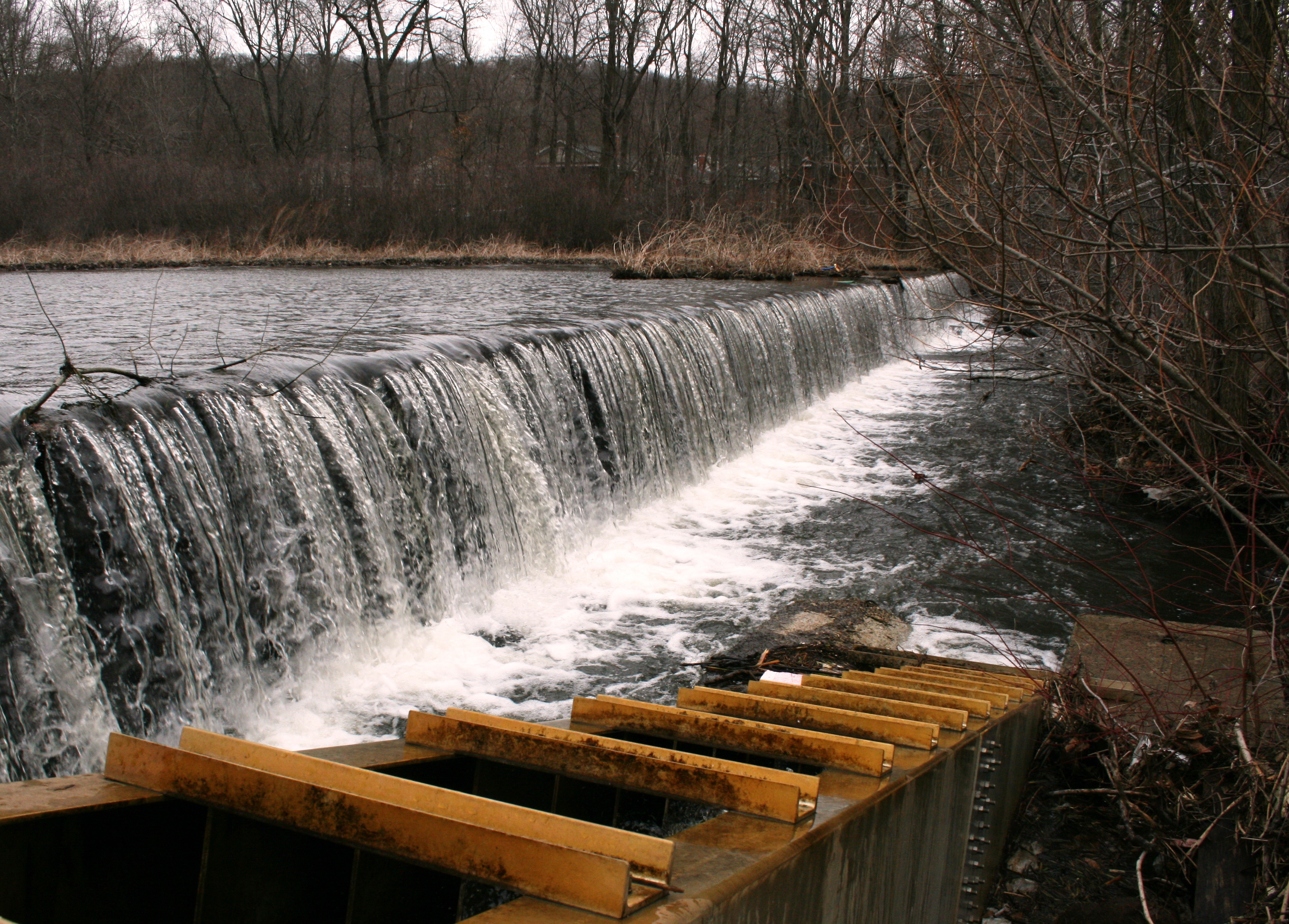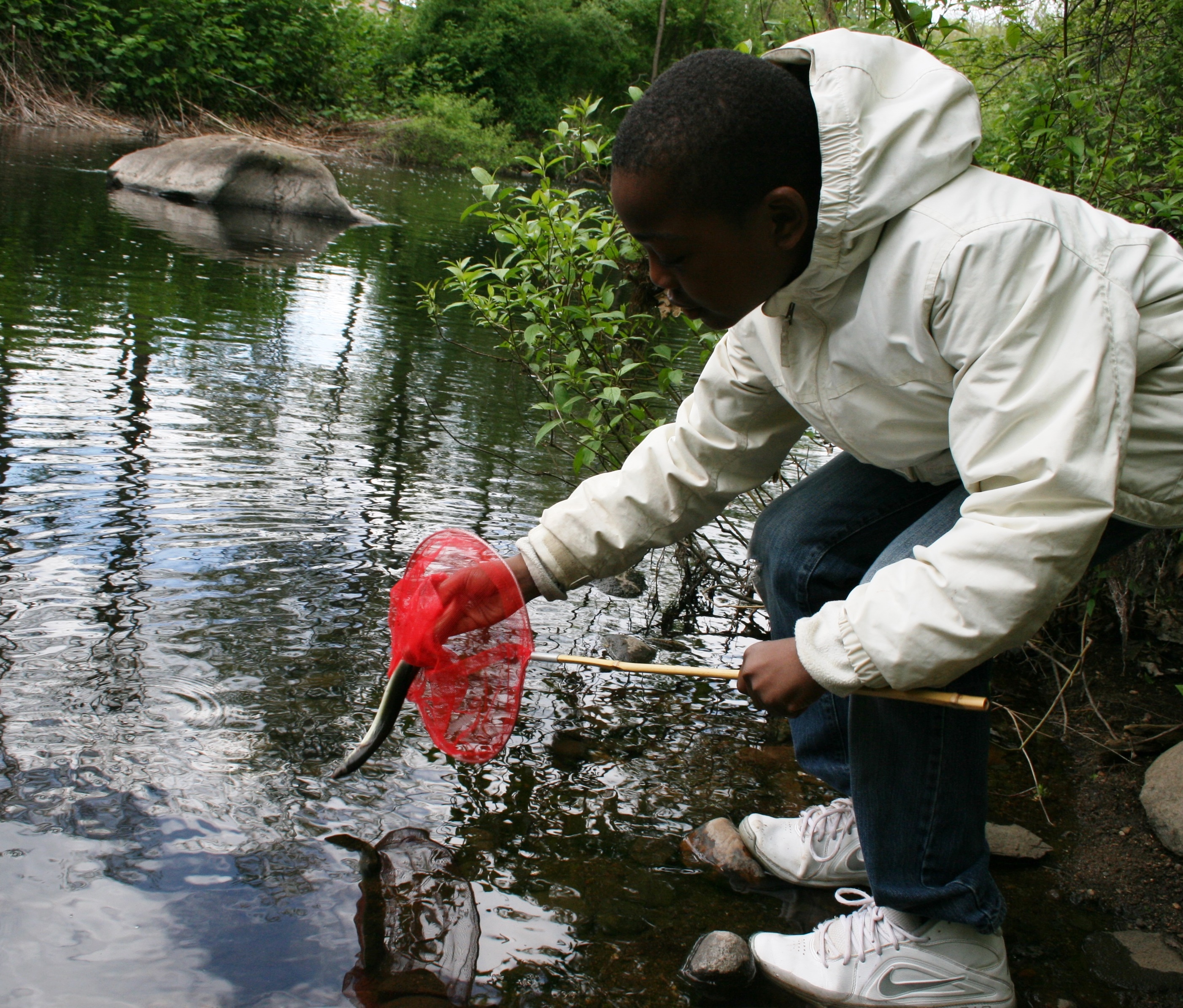We’re pleased to announce that we’ve received federal grants for projects to remove dams at the New Haven-Woodbridge border and in Mystic to reduce flood risk and restore migratory access for fish.
The projects are part of a national effort to make the region affected by Superstorm Sandy more resilient to future storms.
Read our full press release below. Representatives Rosa DeLauro and Joe Courtney also released statements applauding the grants.

FOR IMMEDIATE RELEASE
Friday, October 25, 2013
SAVE THE SOUND RECEIVES FEDERAL COASTAL RESILIENCY GRANTS FOR DAM REMOVAL PROJECTS
NEW HAVEN, CT — Save the Sound, a program of Connecticut Fund for the Environment, yesterday received two grants from the Department of the Interior for dam removal projects in New Haven and Mystic. The funding is part of a first round of federal grants for projects that will restore coastal habitats and improve resiliency to powerful storms like Sandy, which hit the Northeast nearly one year ago. The grants will be disbursed to the U.S. Fish and Wildlife Service and the projects coordinated by Save the Sound.
“Removing the dams at Pond Lily and Hyde Pond will have the dual benefits of protecting New Haven and Mystic from flooding and improving aquatic connectivity and passage for migratory fish,” said Gwen Macdonald, habitat restoration director for Save the Sound. “It will eliminate the risk of dam failure in a severe storm and reconnect the river to its flood plain. At the same time, both these projects are of major ecological value because they will restore access to spawning ground for fish species that are foundational to the Long Island Sound food web.”
The dam at Pond Lily, near the New Haven-Woodbridge border, is in poor condition and is currently contributing to occasional flooding in southern Woodbridge. Its removal will drop the water level upstream and reconnect the river to its floodplain, thereby eliminating the threat of dam failure that could cause serious property damage and even loss of life in the commercial center of New Haven’s Westville neighborhood. The pond is on land owned by the New Haven Land Trust, which has been a partner in the long effort to restore more natural conditions to the preserve. In addition to the land trust, NOAA, Restore America’s Estuaries, American Rivers, and the town of Woodbridge have worked together to make this project possible.
Pond Lily is upstream of an earlier Save the Sound effort funded under the American Recovery and Reinvestment Act. The West River project, completed last year, replaced outdated tide gates to restore daily tidal flushing to 80 acres of tidal marsh habitat and allow passage for fish. The dam removal and tide gate project together will restored 10 river miles and 81.8 acres of tidal marsh, continuing the effort to restore this urban river that was blocked for nearly a century.

The project in Mystic will remove a dam near Hyde Pond, on Whitford Brook, the freshwater section of the Mystic River. A flood on the river a few years ago resulted in property damage, which likely would have been even worse if the dam had failed. Removing the dam will eliminate this risk and provide a safety valve in the event of heavy rains.
This site is of particular conservation value because it hosts migration of alewives, blueback herring, and American eel, all Endangered Species Act candidate species, as well as sea run brown trout. The river currently has a fishway in place, which will be returned to the Department of Energy and Environmental Protection for reuse at another site.
The dam at Hyde Pond, like many of Connecticut’s over 5,000 dams, is on private property. A law passed this spring with Save the Sound support permits dams to be inspected by qualified private-sector engineers instead of the state. This will improve public safety by increasing the frequency of inspections, and is also expected to encourage more landowners to remove obsolete dams on their property.
USFWS assigns a socioeconomic value to each project based on its risk mitigation and ecological benefits. The benefits of the $661,500 Pond Lily project are estimated at $1.3 million, and Save the Sound expects it to generate up to 25 engineering and construction jobs. USFWS estimates the benefits of the $551,250 Hyde Pond project at $2 million.
A list of all the projects that received funding may be found here.
###
Posted by Laura McMillan, director of communications for CFE/Save the Sound

1 thought on “Save the Sound Receives Federal Resiliency Grants for Dam Removal Projects”
Comments are closed.